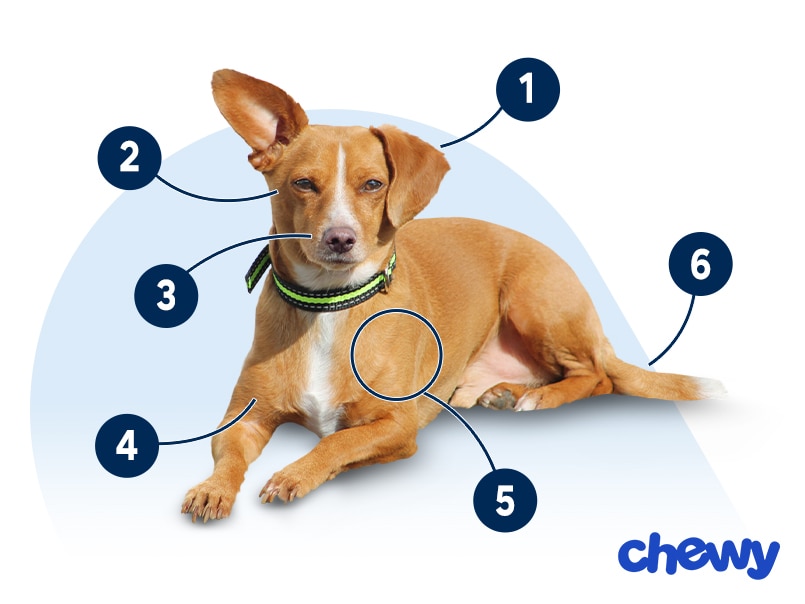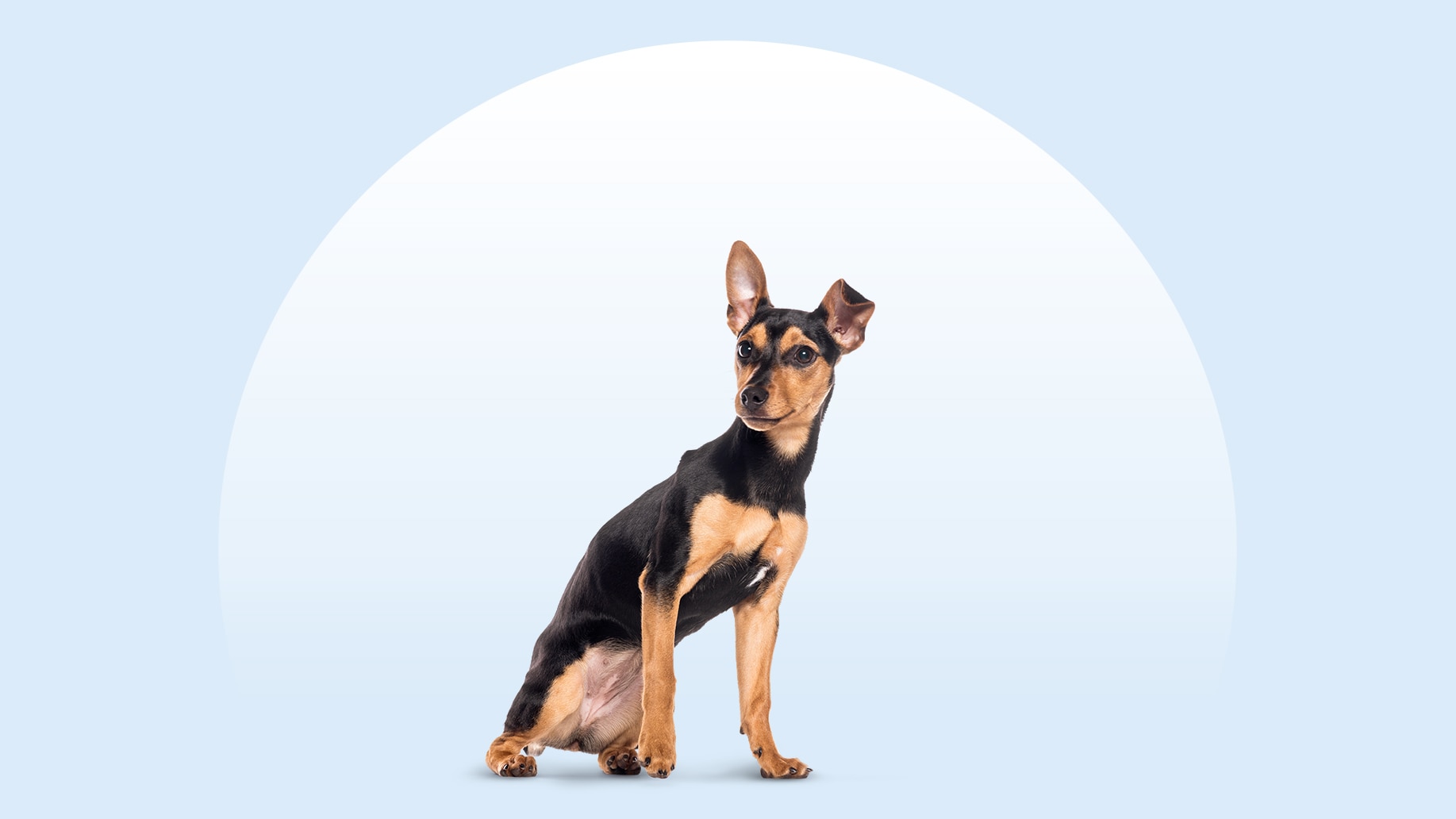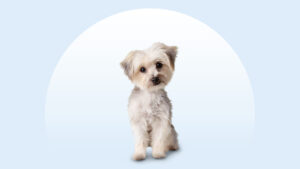Chiweenie
Updated December 15, 2025
Chiweenie
Updated December 15, 2025
The Chiweenie is a cute and compact cross between a Chihuahua and a Dachshund. While Chiweenie characteristics vary, expect this small dog to have a big personality and a soft spot for their favorite person. (That’s you!) Chiweenies thrive on human companionship and make sweet, playful pets for both families and singles.
Alert, Affectionate, Opinionated
5–15 pounds
5–8 inches
12–16 years
Black, Tan, Red, Fawn, Cream, Brindle, Merle, Piebald
A Chiweenie is equal parts cute and commanding, so expect these small dogs to monopolize your attention and affection.
A true Velcro dog, this Chihuahua–Dachshund mix prefers to be by your side 24/7, no matter the activity. The good news is that their itty-bitty size makes them easy to travel with, even while you run errands.
Chiweenies are also adaptable to just about any living situation as long as you give them enough daily exercise, training, and lots of love.
Chiweenie Characteristics
Chiweenie Appearance
As a cross between the Dachshund and Chihuahua dog breeds, Chiweenies can have a range of physical traits that take after each parent breed. These dogs might have a long body and short legs like a Doxie, or take after a Chihuahua and have a more compact body and long legs.
There’s a lot of variation. The only part of a Chiweenie’s appearance that’s guaranteed is their small size; a full-grown Chiweenie is only about 15 pounds, max.
Generally speaking, a Chiweenie typically has alert, expressive features—and a coat that’s either short and smooth, or slightly longer with feathering around the ears, feet, and tail.

- Ears
Chiweenies can have perky, triangular ears or folded ears that hang down next to their head.
- Eyes
A Chiweenie’s eyes are typically round and expressive. They might bulge a bit if your pup takes after their Chihuahua parent.
- Nose
A long muzzle is typical, and these dogs might have a black or brown nose, depending on their coat color.
- Coat Length
Chiweenies can have a short or medium-length coat. If their fur is longer, they might have some feathering behind their ears, and on their feet and tail.
- Coat Color
Because Chihuahuas and Dachshunds carry genes for many different coat colors, Chiweenies come in a wide range of colors and patterns. Solid coats include black, tan, cream, red, or fawn; Chiweenies can also have markings such as brindle, merle, or piebald.
- Tail
A Chiweenie’s tail is usually long and often curls slightly.
Chiweenie Temperament
Chiweenie dogs are people-centric pups who form close bonds with their humans.
“Generally speaking, this mix is very interested in engaging with people, and working out how to win the attention of the family and enjoy a lot of time on laps,” says Annie-Mae Levy, professional dog trainer at Woofz.
Don’t be surprised if your Chiweenie follows you from room to room and protests being left behind. Separation anxiety can develop if you don’t train your dog from an early age to be independent. But even with proper training, most Chiweenies aren’t well-suited for spending long stretches of the day by themselves.
Most Chiweenies have a bright, social personality, but they’ll be quick to sound the alarm when a newcomer arrives and might be a bit timid about warming up to strangers. Early socialization to new people and places can help your Chiweenie puppy grow to be more confident in these situations.
With family and familiar friends, the Chiweenie loves to play and have a surprising amount of energy. With hunting genes borrowed from the Dachshund, Chiweenies love to chase and tussle with dog toys. But, true to their Chihuahua roots, these companion dogs love to snuggle up in your lap after a good romp.
How to Care for a Chiweenie
To care for a Chiweenie, you’ll need to set aside time each day to exercise, train, and play with your dog.
Chiweenies have relatively simple grooming requirements, so keeping their coat looking good is a cinch. Bonus: This leaves more room in the day for fun and cuddles.
Grooming
Training
Diet
Exercise
Environment
Chiweenie Health
Like other small breed dogs, the Chiweenie lifespan is usually long: About 12–16 years is typical. Regular veterinary care, a healthy diet, and routine exercise can help you make the most of your years together.
That said, a Chihuahua-Dachshund mix is likely to inherit health problems from both parents. So, it’s a good idea to become familiar with common health issues that can develop in these small dog breeds.
- Intervertebral disc disease (IVDD): Because of a longer-than-usual spine inherited from the Dachshund, Chiweenies can be more prone to IVDD. This condition occurs when one or more discs between the vertebra herniates or bulges, putting pressure on the spinal cord. IVDD can cause pain, numbness, and even paralysis. Extra weight and high-impact activities increase the risk of a Chiweenie developing IVDD.
- Dental problems: Because both parent breeds are predisposed to dental problems or gum disease, a Chiweenie faces similar risks. But being proactive about brushing your dog’s teeth can go a long way. “Routine preventative care and instituting at-home dental care measures helps ward away a toothless future,” says Dr. Koballa.
- Luxating patella: When a dog’s kneecap slips out of place, it’s known as a luxating patella. It’s not an uncommon problem, especially in small breed dogs like the Chihuahua. Keeping your Chiweenie at a healthy weight can help lighten the load on joints.
- Heart problems: Some Chihuahuas are affected by degenerative heart disease. A heart murmur may be the first sign of a developing problem, followed by symptoms like coughing, weakness, shortness of breath, or a reluctance to exercise.
- Eye problems: Chiweenies might inherit the cute, round eyes of a Chihuahua—and the eye problems that sometimes come with them. For a Chiweenie, look for signs like redness, discharge, or vision trouble. These could be an indicator of developing conditions like glaucoma, cataracts, or chronic dry eyes.
Chiweenie History
The Chihuahua-Dachshund mix became especially popular in the late 1990s as designer dog breeds started to increase. Dubbed a Chiweenie or a Choxie, these hybrid dogs aren’t recognized by the American Kennel Club. Their parent breeds, however, have long histories.
Chihuahuas are a Mexican dog breed developed from the Techichi, an ancient dog breed dating back to the 9th century. At around 6 pounds, Chihuahuas are one of the smallest dogs and are bred to be companions.
Dachshunds originated in Germany, where they were first bred 600 years ago to hunt badgers. Today, they are one of the most popular dog breeds in the U.S.







